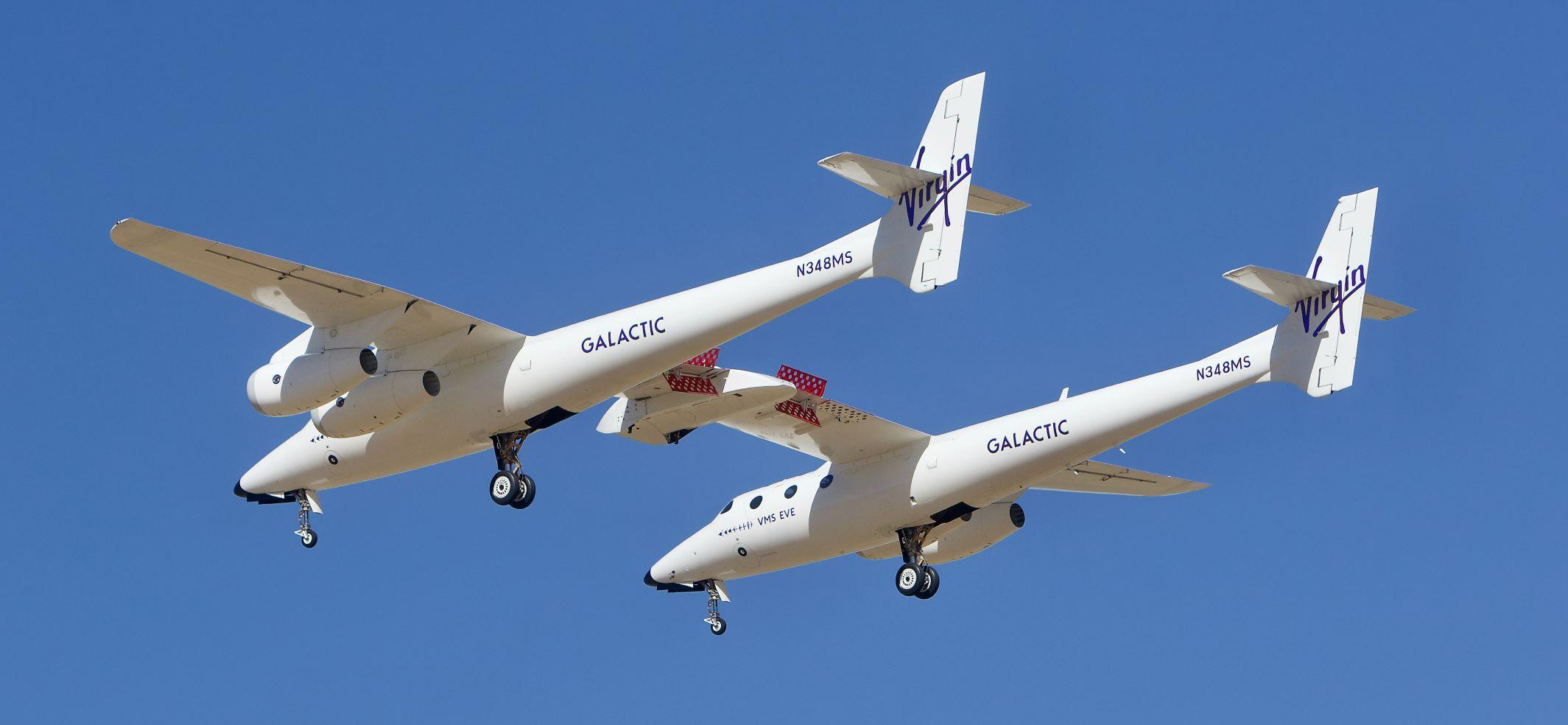
With its new four-point launch pylon on view, upgraded carrier aircraft VMS Eve lands back at Mojave on Feb. 15.
COLORADO SPRINGS—Virgin Galactic completed the first test flight of the VMS Eve carrier aircraft at Mojave, California, on Feb. 15 following an extensive upgrade effort, paving the way for ferrying the updated SpaceShipTwo spaceplane VSS Unity back to New Mexico for the start of commercial suborbital flights later this year.
The flight, which saw the carrier aircraft reach a maximum speed of 350 kt. at an altitude of around 41,500 ft., lasted 2 hr. 41 min. It was used to wring out key upgrades designed to support higher frequency commercial suborbital flights. The main modification is an improved four-point launch pylon for carrying the spaceplane, as well as new horizontal stabilizers and upgraded avionics and mechanical systems.
Installation of the revised pylon involved enhancements to the center wing where the structure attaches to the spaceplane fuselage. Modification work has taken longer than the company expected and forced Virgin Galactic to reallocate engineering resources away from completion of the second spaceplane VSS Imagine, which was unveiled in March 2021 but has yet to fly. As a result, Virgin says first commercial services with Imagine will not occur this year as originally planned.
But the company does intend to begin the long-delayed start of commercial spaceflights by mid-2023 using Unity, which will be ferried by Eve shortly to Spaceport America in New Mexico. The timing of the ferry flight will depend on the results of the Feb. 15 shakedown mission of Eve. Pending these results, the company plans to conduct an initial glide flight of Unity, followed by an initial suborbital flight with Virgin Galactic crew onboard to help refine astronaut training procedures.
Virgin’s commercial space service is expected to begin with a research mission for the Italian Air Force, followed by private astronaut spaceflights. As of late 2022, Virgin Galactic reported a backlog of around 1,000 seats for spaceflights, of which around 100 seats have been repurposed to the research market and the balance to travel reservation company Virtuoso.
